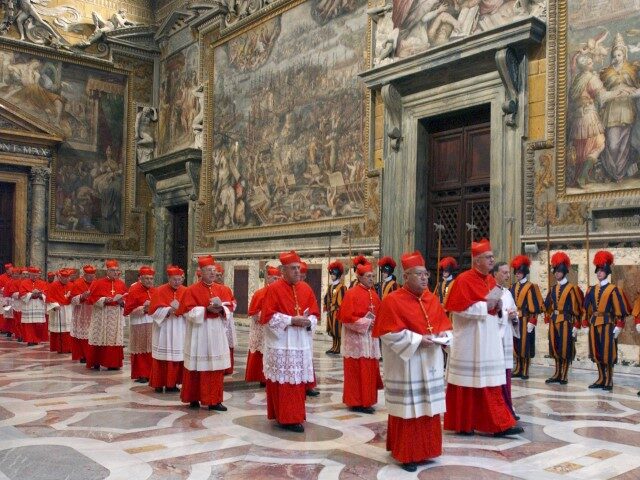ROME — A major Catholic news outlet has lamented the disturbingly shallow pool of serious papal contenders to replace Pope Francis when the moment for a conclave arises.
Writing for The Pillar Thursday, veteran Vatican journalist Ed Condon sets about trying to answer the question “Why is no cardinal good enough to be papabile anymore?”
Ten years into the Francis pontificate, which was predicted to be a short one by the pontiff himself, talk in Rome regularly returns to the question of papabili, the short list of probable contenders for the See of Peter.
“Unusually, given Francis is now 86 and has survived an urgent recent hospital stay, the field of likely successors has no obvious frontrunners — and those that might be considered likely candidates appear increasingly to be in the media crosshairs,” Condon contends.
Because the Francis pontificate has outlasted the expectations of many, certain cardinals who once enjoyed favored status within the college have subsequently seen their stock fall, whether because of age, health issues, bad press, or possibly fatal flaws revealed by the close scrutiny to which they are subjected.
According to Condon, “a common theme among the new curial leadership class seems to be a preference for relative invisibility, with those who poke their heads over the top liable to come in for swift public criticism.”
This may be due in large part to Pope Francis’s autocratic style of leadership. Unlike his immediate predecessors, Francis does not share decision-making with his closest collaborator, nor does he encourage them to take initiative. For this reason, many keep a low profile both to avoid both negative media attention and any suspicion of protagonism that could draw the pope’s ire.
The lack of obvious papal successors may also be due to the unfortunate fact that the current college of cardinals is simply not populated by the ecclesiastical giants that once graced its ranks. A pontificate that rewards mediocrity does not tend to produce a stellar cast of characters in key positions.
In conclusion, Condon proposes that the next conclave “is already set to be uniquely unpredictable,” in part because the cardinal electors do not really know each other well and public perceptions “are now likely to shape private impressions among the electors more than ever before.”
To address this problem and others, in 2020 Edward Pentin — another English-language Vatican journalist with many years of experience — published a comprehensive “Who’s Who” volume of prominent papal contenders titled The Next Pope.
In it, Pentin offered a biographical sketch of what he saw as the 19 primary papabili along with an analysis of their theological perspectives and pastoral priorities. The 691-page tome was meant as a resource for cardinals and laypeople alike in an age when public perception does not always align with the historical record.
With the college of cardinals always in flux, Pentin may wish to publish an updated version of his work, since the three years since its publication have seen considerable changes in the makeup of the college as well as the status of its members.
Unfortunately, however, no amount of journalistic investigation will be able to make up for the paucity of outstanding leadership skills that has made the current cardinalatial bench so shallow.

COMMENTS
Please let us know if you're having issues with commenting.